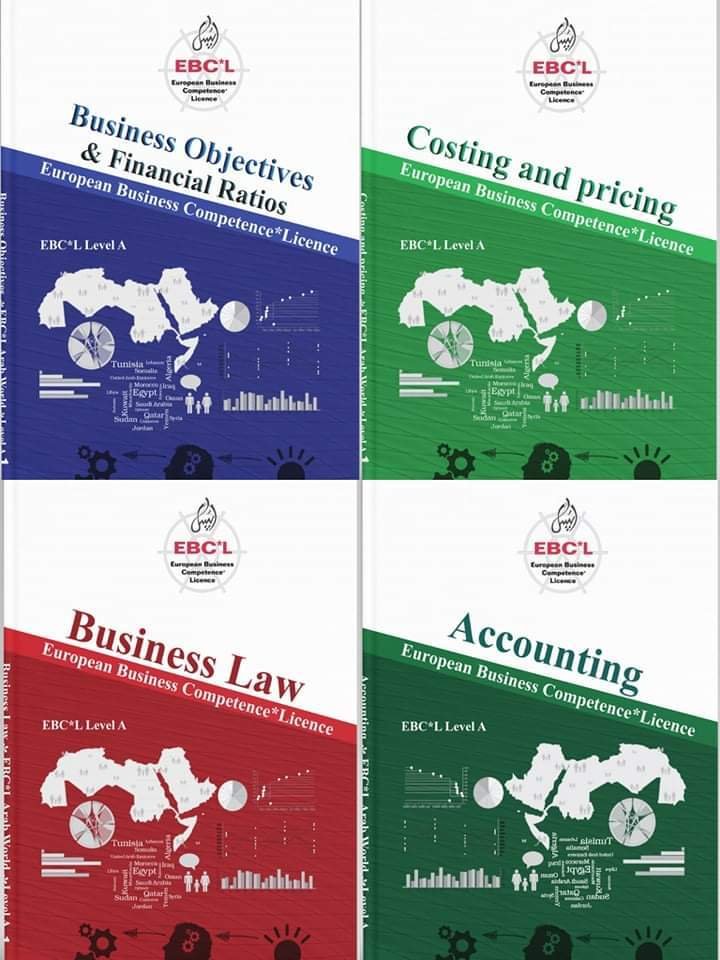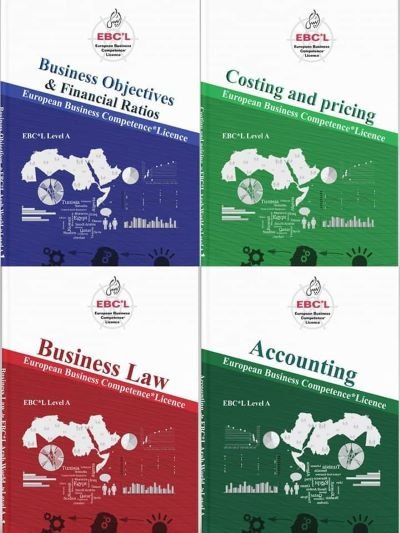Everything about accounting for non-accountants, and everything a trainee needs to master the EBC*L Exam.
Trainees learn all needed about the annual financial statement, sales contract and much more.
What is accounting?
Accounting is a term that describes the process of consolidating financial information to make it clear and understandable for all stakeholders and shareholders. The main goal of accounting is to record and report a company's financial transactions, financial performance, and cash flows.
Importance of Accounting
1- Keeps a record of business transactions
Accounting is essential as it keeps a systematic record of its financial information. Up-to-date records help users compare current financial information to historical data. With complete, consistent, and accurate documents enable users to assess a company's performance over time.
2- Facilitates decision-making for management
Accounting is significant for internal users of the organization. Internal users may include people who plan, organize, and run companies. The management team needs accounting in making important decisions. Business decisions may range from deciding to pursue geographical expansion to, instead, improving operational efficiency.
3-Communicates results
Accounting helps to communicate company results to various users. Investors, lenders, and other creditors are the primary external users of accounting information. Investors may be deciding to buy shares in the company, while lenders need to analyze their risk in determining to lend. Companies need to establish credibility with these external users through relevant and reliable accounting information.
4-Meets legal requirements
Proper accounting helps organizations ensure accurate reporting of financial assets and liabilities. Tax authorities, such as the U.S. Internal Revenue Service (IRS) and the Canada Revenue Agency (CRA) use standardized accounting financial statements to assess a company's declared gross revenue and net income. The accounting system helps ensure that a company's financial statements are legally and accurately reported.
The different types of accounting
Financial accounting
Every year, your company will generate financial statements that people outside of your company—people like investors, lenders, government agencies, auditors, potential buyers, etc.—can use to learn more about your business's financial health and profitability.
Preparing the company's annual financial statements this way is called financial accounting. If you're looking to hire a financial accountant, start with looking into how much an accountant costs.
Managerial accounting
Managerial accounting (or management accounting) is similar to financial accounting, with two important exceptions:
The statements produced by managerial accounting are for internal use only.
They're generated much more frequently—often quarterly or monthly.
If your business ever grows to the point where you need to hire an accountant full-time, most of their time will be taken up by managerial accounting. You'll be paying them to produce reports that provide regular updates on the company's financial health and help you interpret those reports.
This is somewhat similar to the work a financial analyst might do. However, a financial analyst will also look at past and current trends in the larger economy, not just your business, to inform their recommendations.
Tax accounting
Tax accounting is designed to ensure that you don't pay more income tax than the IRS legally requires. An example of this is when your accountant provides you with recommendations for getting the most out of your tax return.
Tax accounting is regulated by the Internal Revenue Service (IRS), and the IRS legally requires that your tax accounting adheres to the Internal Revenue Code (IRC).
Cost accounting
You're doing cost accounting when you're trying to figure out how to increase your margin or decide if raising prices is a good idea.
Cost accounting involves analyzing all of the costs associated with producing an output (whether a physical product or service) to make better decisions about pricing, spending, and inventory.
Cost accounting is often a prerequisite of managerial accounting because managers use cost accounting reports to make better business decisions. It also feeds into financial accounting since costing data is usually required when compiling a balance sheet.
Credit accounting
Credit accounting involves analyzing all of a company's unpaid bills and liabilities to ensure that a company's cash isn't constantly tied up in paying for them.
Credit accounting can be one of the most challenging kinds of accounting to do well because it's a complex subject to be critical about. Talking about debts can be a sensitive but necessary conversation.
Book your package now and don't miss out on the big discount for a limited time and with priority booking
Training dates via Zoom platform
1- Week One - Corporate Law
2-Week Two - Accounting
3- Week Three - Cost and Price
4- Fourth week - corporate goals and financial ratios
5- Fifth week - test/certificate
JOIN US FOR THIS RARE OPPORTUNITY
Meet Your Instructor تعرّف على مدرِّبك

Top Skills أهم مهارات المدرب
Quality & Risk Management,
Intercultural Skills,
Management Consulting
Master in Translation Studies
Master in Interpretation
Languages اللغات
English, Arabic, German
الانجليزية، العربية والألمانية
:للتواصل مع فريق الدعم
support@ebcl-arab.com
DR. MOHAMED-ALI IBRAHIM
Certified Trainer at EBCL International in Vienna/Austria
Lecturer and Director of the Master's Program
(MBA) Professional Business Administration
University of Applied Sciences Vienna
Honors-Awards
Global Awards
- Austrian State Award
Austrian State Appreciation Award
- International German Award
Germany International Prize
- SABER International Award (PR Oscar)
Sabra International (Oscar Relations p .)
- Best Practice Award
Best Practical Application Award / Austria
Publications
20 books (on Amazon) about Business Administration, Quality Management, and Translation Science.
AMAZON: most important literature on the platform
book here a strategical session with the Senior Lead Auditor free of charge to discuss all the details:
The Zoom meetings are intended only for Organizations, NOT for Freelancers
The books you study with:
Arabic books:


English Books


Target Groups:
Entrepreneurs, company owners and project managers
Lawyers, translators, engineers, doctors, and government employees in the different ministries, and those in charge of political parties, and civil society organizations.
Fresh graduates, students and job seekers, and everyone who aims for personal and professional development raises their personal and professional levels.
Training sessions and diploma exam
Business Law
First week
Accounting
and financial statements:
Second week
Cost Accounting
and pricing
The third week
Business Objectives
and financial ratios
Fourth week
Online exam
The fifth week
European Business Competence License
As a result of the transparency of the scientific content and the method of training according to an elaborate work manual and the issuance of certificates from one of the European Union countries, which is one of the things that characterize the European Business Competence License, it has been approved by many European economic entities as a qualifying necessity for appointment and promotion in the ladder of jobs in the private and public sectors. It has also been adopted in many projects funded by European Union institutions.
What you will learn
level A
Knowledge bases in business administration
First-level graduates learn accounting techniques and prepare and read the balance sheet
Determining the cost and price of a product or service, and how to use business objectives in companies
And identify the measurement tools for their work in order to achieve the goal
From the balance sheet, and estimating financial ratios
They also learn about ways that can help each individual
To reach these goals
(costs and prices)
The first level generally covers the basics of business management


TESTIMONIALS
HOW DO I REGISTER? كيفية التسجيل
لن يتم التسجيل إلا بعد ضغط الرابط أدناه وتعبئة استمارة التسجيل الالكتروني
The Only People Who Will Be Considered Are Those Who Are Fully Registered Below...











